What is Borage? What are its components or active ingredients? What are the main therapeutic indications? What parts to use? Who is it good for? Who is it forbidden to? How is it consumed and what are the contraindications?
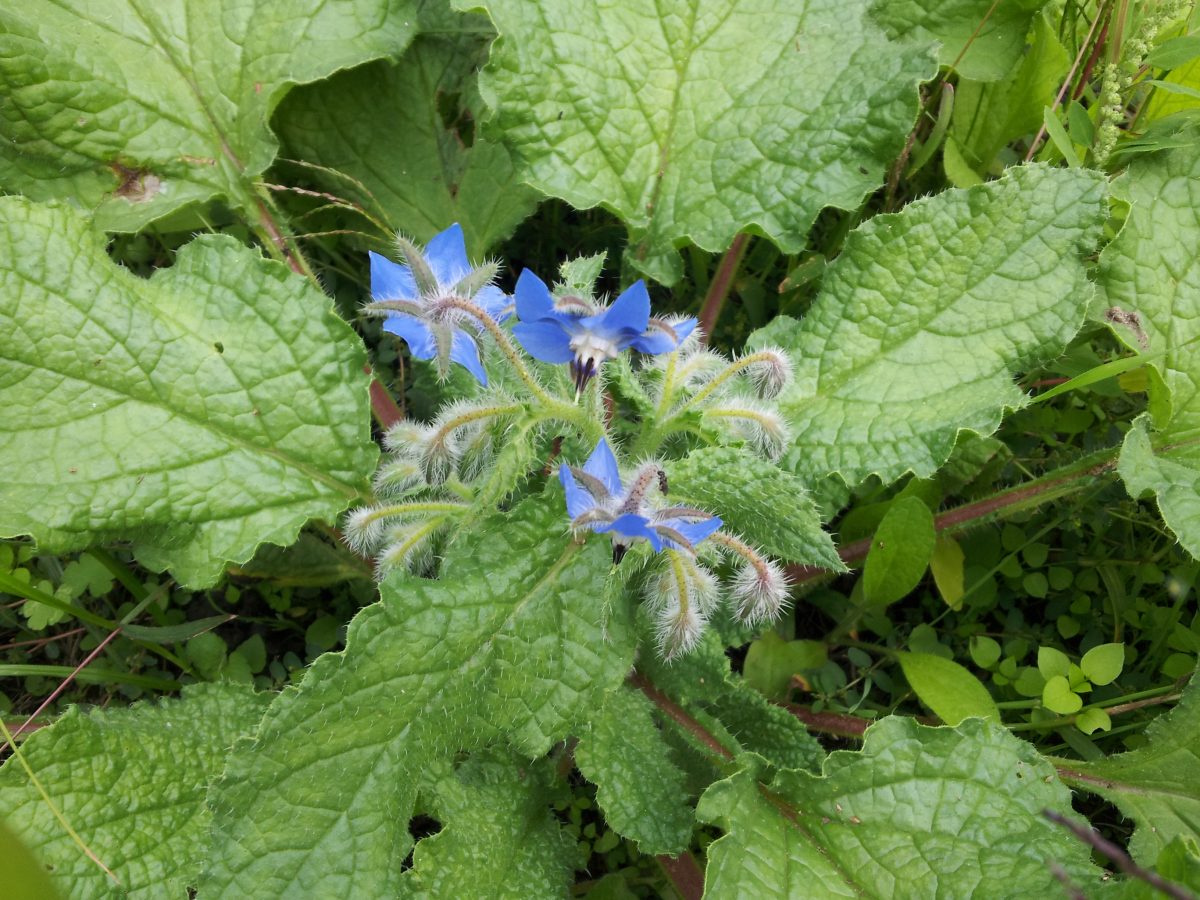
What is borage: properties, uses and contraindications
There borage, scientific name Borago officinalis, is a officinal plantspontaneous of the Boraginaceae family which for its healing properties is grown on a large scale for commercial purposes and in pots (also as an ornamental plant) for the richness of its foliage and for its flowers rich in nectar with a sky blue color in the shape of small five-petal stars.
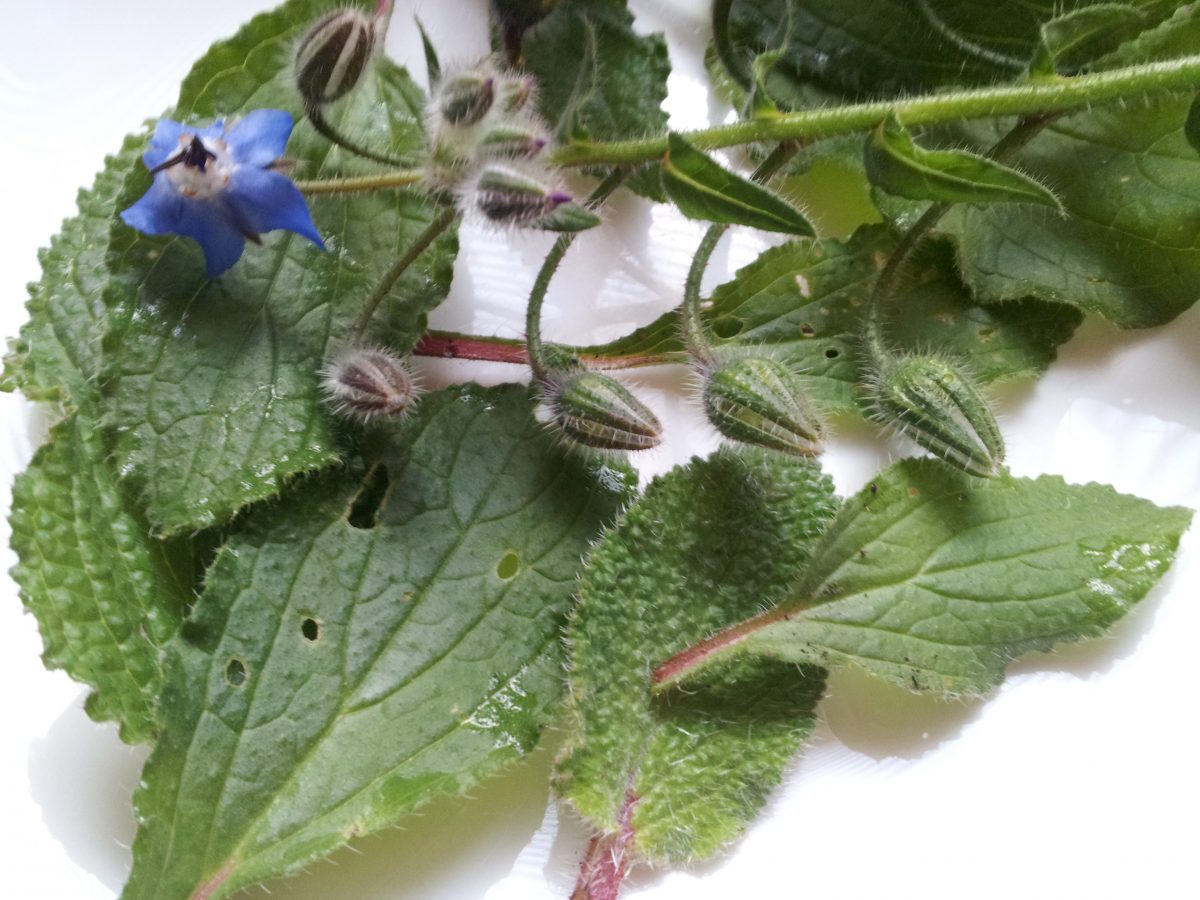
Borage: usable parts
All parts of the borage plant, even if covered with a thin and thick whitish hair, are edible and used in cooking, in herbal medicine and in cosmetics.
Read also: Aloe properties contraindications uses
The blue flowers are used to decorate dishes and drinks, to flavor and color the vinegar.
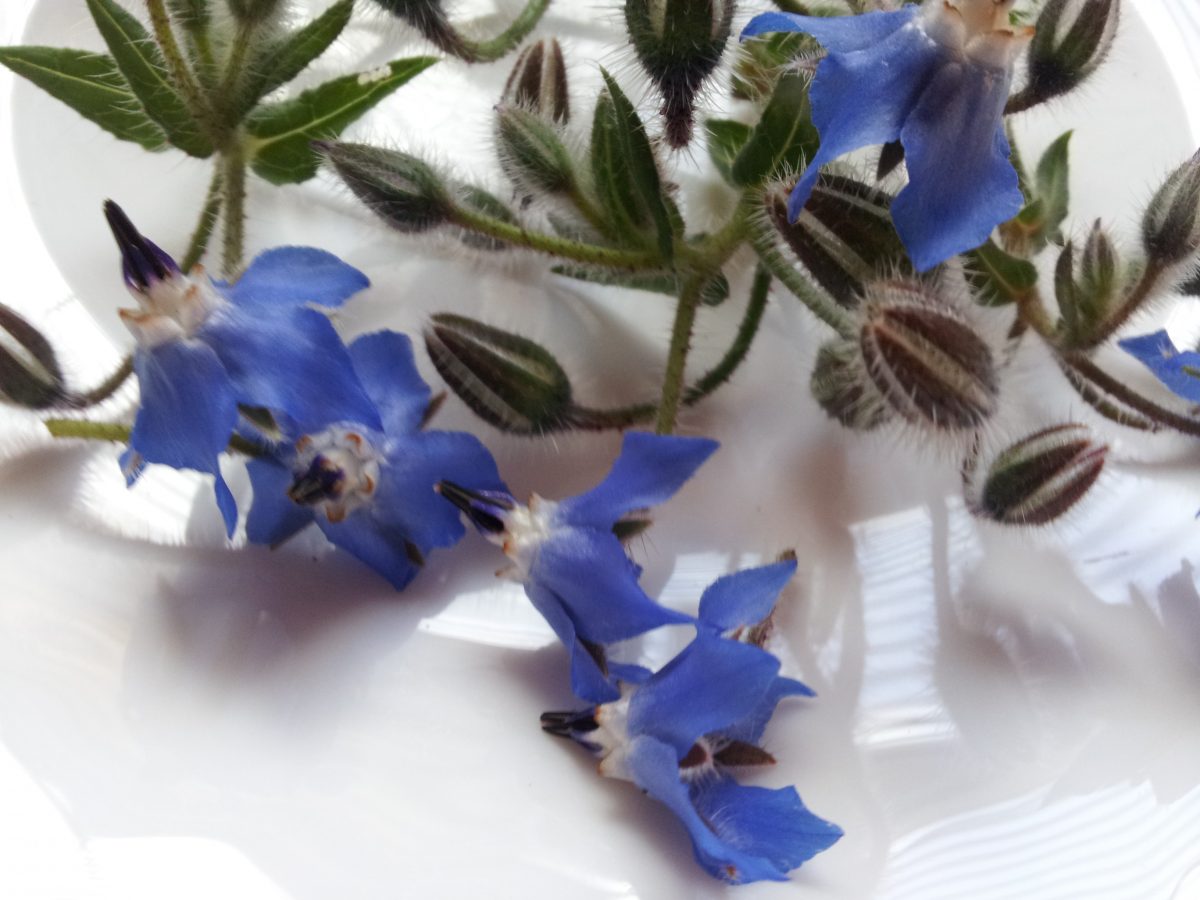
The leaves more tender and internal to the Borage rosette they are used raw in mixed salads while the more leathery ones, after boiling, are used in the preparation of soups, fillings for ravioli, cakes, omelettes and pancakes in batter.

Borage harvest
The leaves are harvested between December and February, before flowering.
storage
The leaves are dried in the air. The flowers, collected when they are completely open, can be preserved candied or frozen in ice trays or dried like leaves.
Components and active ingredients of Borage
Borage leaves are rich in minerals such as calcium (Ca) and potassium (K), they contain tannins and fatty acids, the most important of which is fatty acid. Omega 6, mucilages, flavonoids, prostaglandins and some alkaloids.
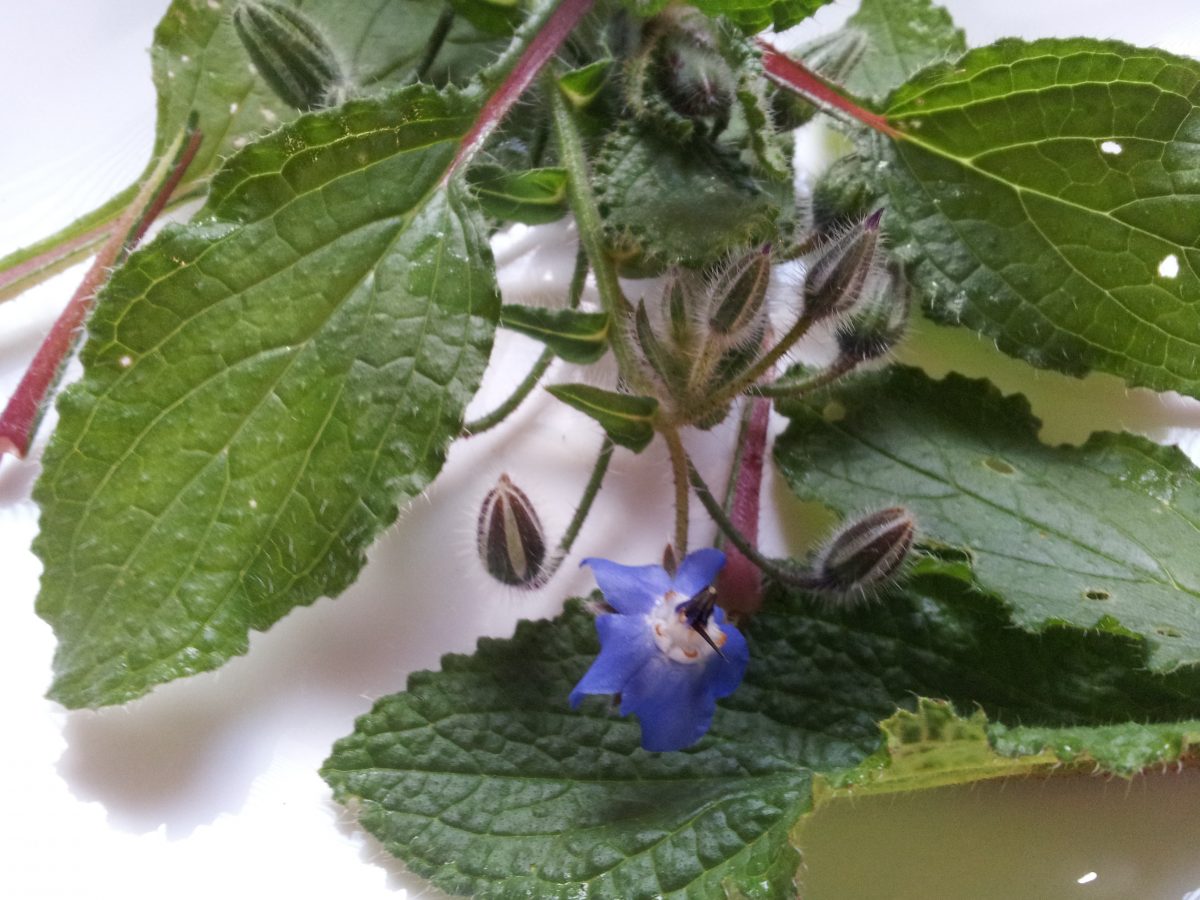
You may be interested in: Honey properties contraindications calories
Properties of Borage
Folk medicine uses the leaves and flowering tops of Borage to treat various types of ailments:
- to treat colds, sore throats, coughs and bronchitis;
- to treat rheumatism, eczema, childhood seborrheic dermatitis, kidney and bladder diseases, depression and nervous stress;
- to maintain blood pressure at normal levels;
- to promote diuresis and sweating;
- to purify and detoxify the body of toxins;
- to keep the cellular structure of the skin and nails young and intact;
- to combat constipation and to promote intestinal evacuation.
Furthermore, Borage is also used as a cardiotonic remedy, as a remedy against menopause disorders and as an antipyretic.
Due to the high content of phytoestrogens, the use of Borage is recommended to increase breast milk in mothers and to regulate hormonal function.
In modern medicine Borage oil is mainly used to regulate hormones, to stabilize blood pressure and blood cholesterol and above all to improve circulation and the functioning of the cardiovascular system.
In cosmetics its oil, rich in antioxidants, is recommended to prevent skin aging, as a tissue revitalizer and to improve skin transpiration. Borage for its emollient properties, is excellent for the care of dry and sensitive skin, against wrinkles, stretch marks, to strengthen fragile nails that break easily.
Borage oil is obtained after a long process of cold pressing of its seeds.
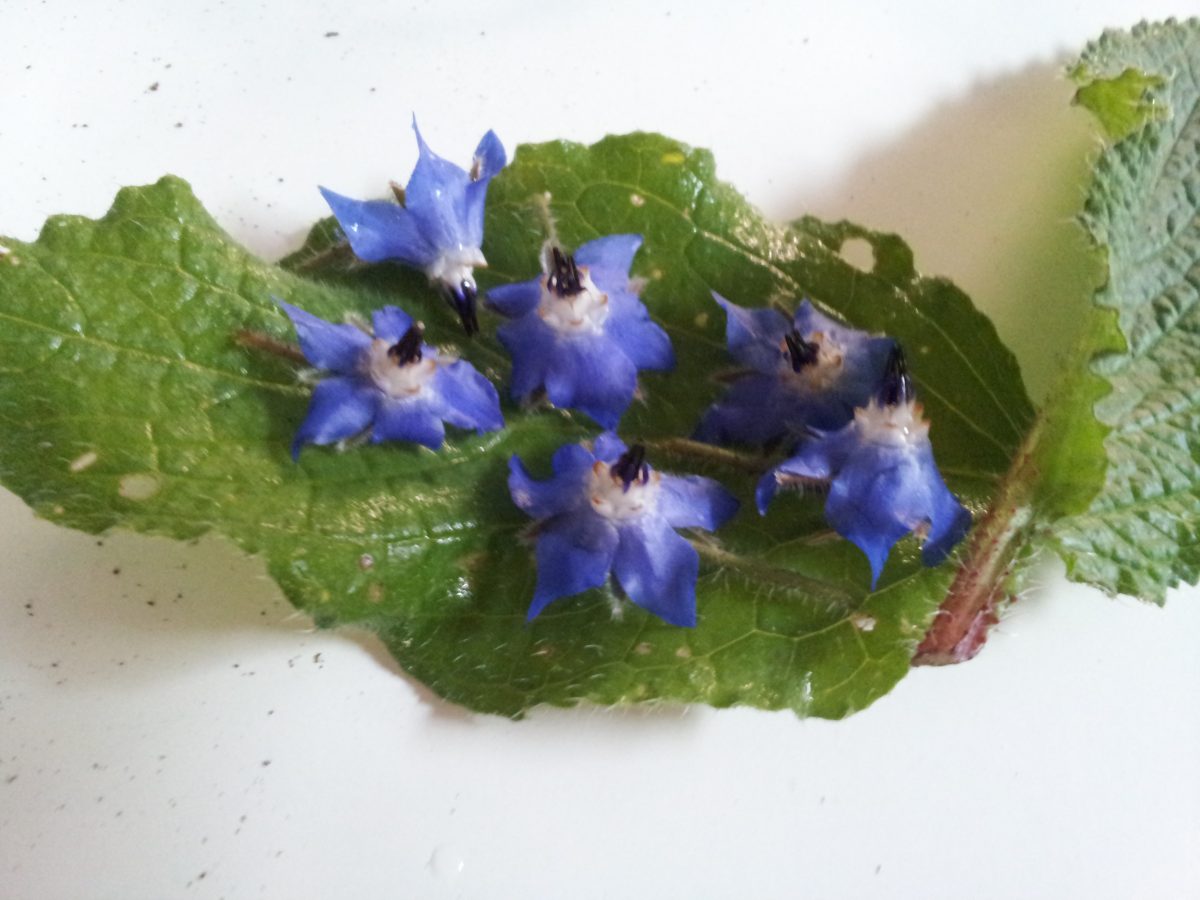
Uses of borage in folk medicine
In folk medicine, borage for its anti-inflammatory, emollient, diuretic and diaphoretic properties, is however used for the preparation of herbal teas and healing decoctions as it is believed that the hepatotoxic components are reduced with the high temperature.
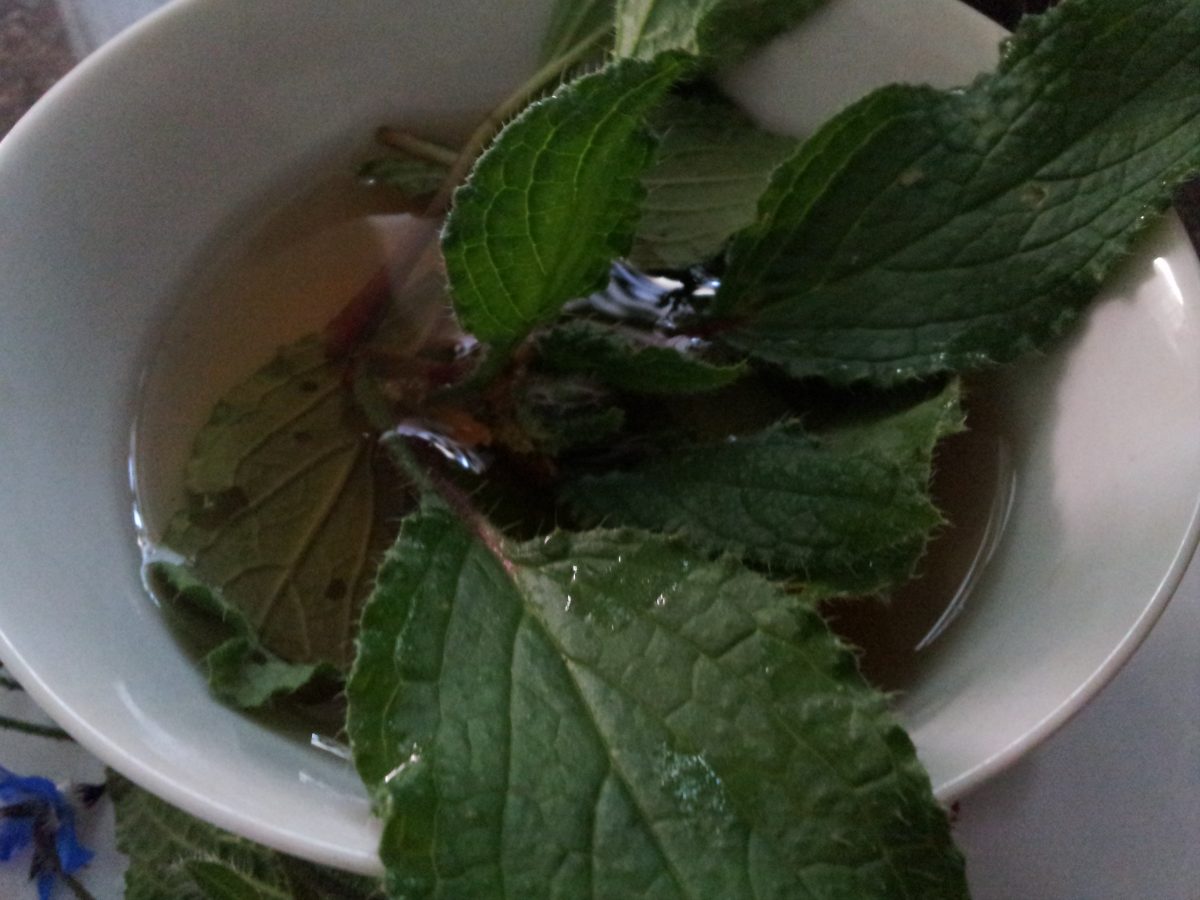
Contraindications of Borage
The therapeutic use in significant quantities of raw borage leaves and flowers is not recommended due to the fact that the petals and raw leaves would contain alkaloids potentially toxic to the liver.
The consumption of borage leaves and flowers is forbidden during pregnancy, during the lactation period and in subjects allergic to one or more components.
Even the use of borage oil should only be used on the advice of the specialist, as it may interfere with the activity of some drugs, such as anticoagulants, antiplatelet agents, fibrinolytics and heparin.
The consumption of borage is also not recommended for people with liver problems.
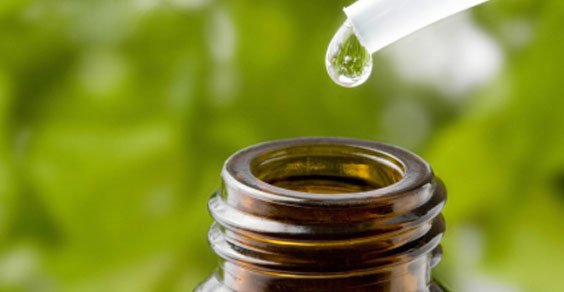
Calories of Borage
100 grams of borage provide only 21 Calories.
Curiosity
Due to its characteristic flavor, borage is also called cucumber herb. The scientific name which means raw wool refers to the thick down that covers the leaves.

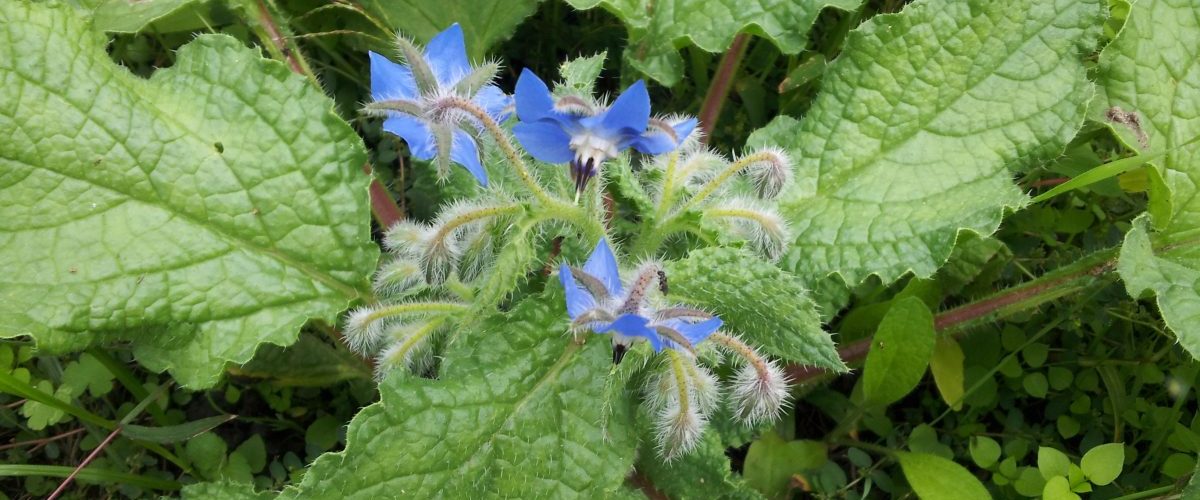

Add comment